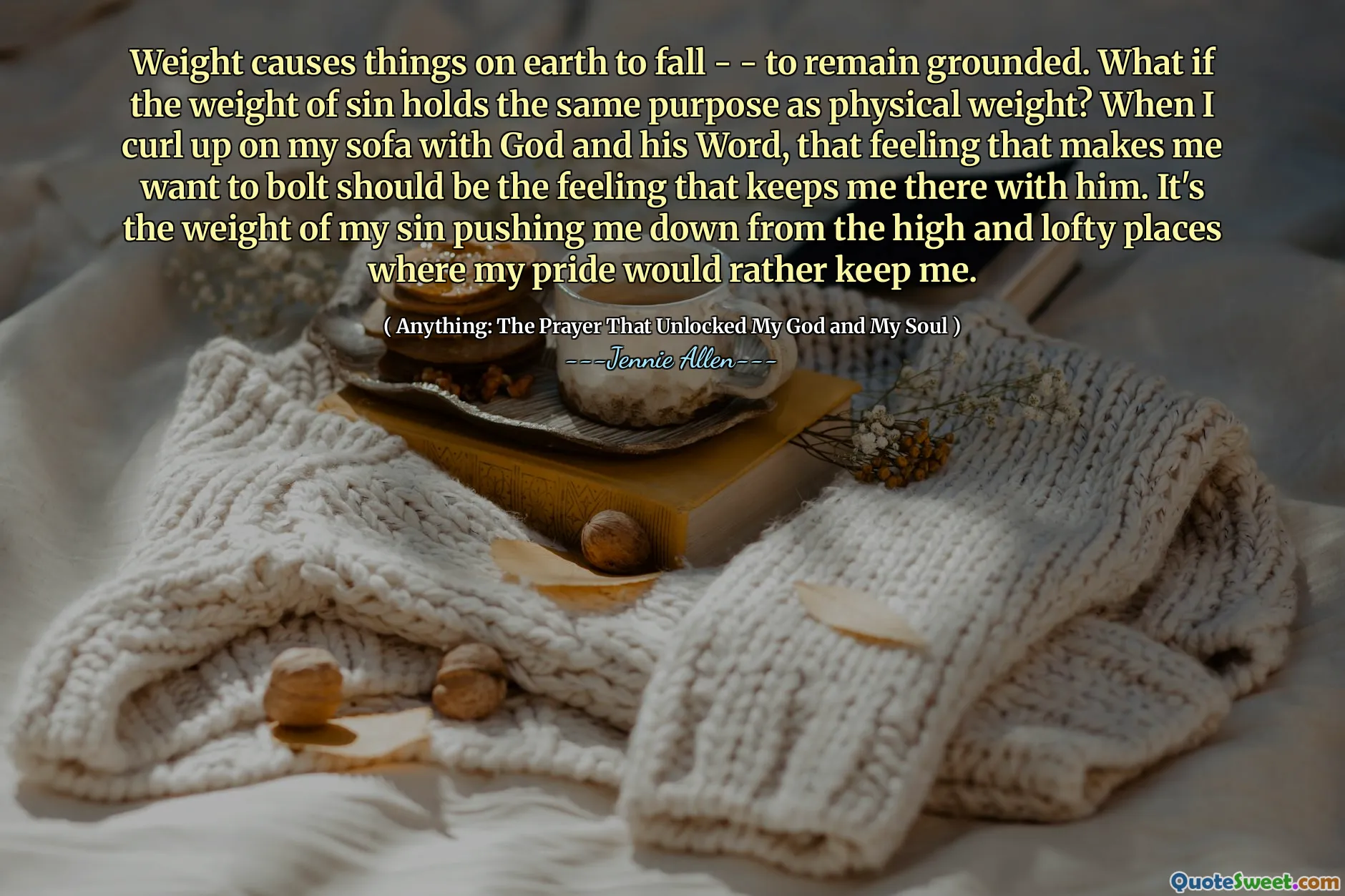
Weight causes things on earth to fall - - to remain grounded. What if the weight of sin holds the same purpose as physical weight? When I curl up on my sofa with God and his Word, that feeling that makes me want to bolt should be the feeling that keeps me there with him. It's the weight of my sin pushing me down from the high and lofty places where my pride would rather keep me.
This quote beautifully juxtaposes the concept of physical weight with the moral and spiritual weight of sin, inviting a deep reflection on how burdens can serve a meaningful purpose in our lives. Often, weight is perceived as a burden or something negative that holds us back. Yet, this perspective challenges that notion by suggesting that the heaviness of sin might function similarly to physical weight—it keeps us grounded.
When we consider weight in physical terms, it is what causes us to fall and stay connected to the earth. Without it, we would float aimlessly, disconnected from reality. Translating that to the spiritual realm, the 'weight of sin' might be what stops us from drifting into pride or elevated states that separate us from humility and truth. The author's image of curling up with God and His Word on a sofa portrays intimacy and comfort but also the struggle one feels—the impulse to escape or 'bolt' from the discomfort sin brings to light.
Rather than running away, the idea is to remain in that space because the weight we feel is actually an anchor, preventing us from rising to deceptive heights fueled by pride. It serves as a reminder to stay humble and grounded in our faith journey. This groundedness can be uncomfortable, but it is ultimately purifying and necessary for growth.
This insight invites individuals to embrace the discomfort and challenges of confronting their sins, rather than fleeing from them, as these difficulties keep us rooted in reality and spiritual authenticity. The metaphor encourages a shift in mindset, viewing sin's weight not purely as condemnation but as a tool for spiritual perseverance and humility. The quote is ultimately one of hope—it suggests that by acknowledging this weight with God, one can find a purposeful place of growth and healing.


